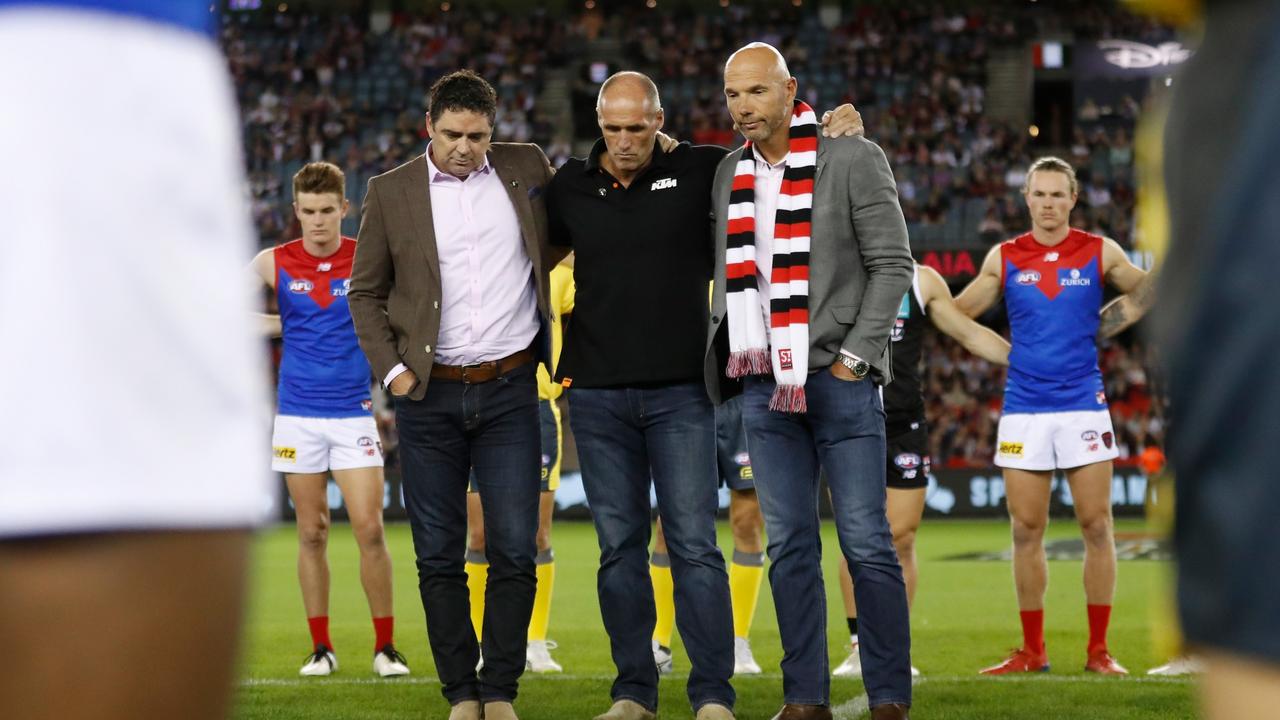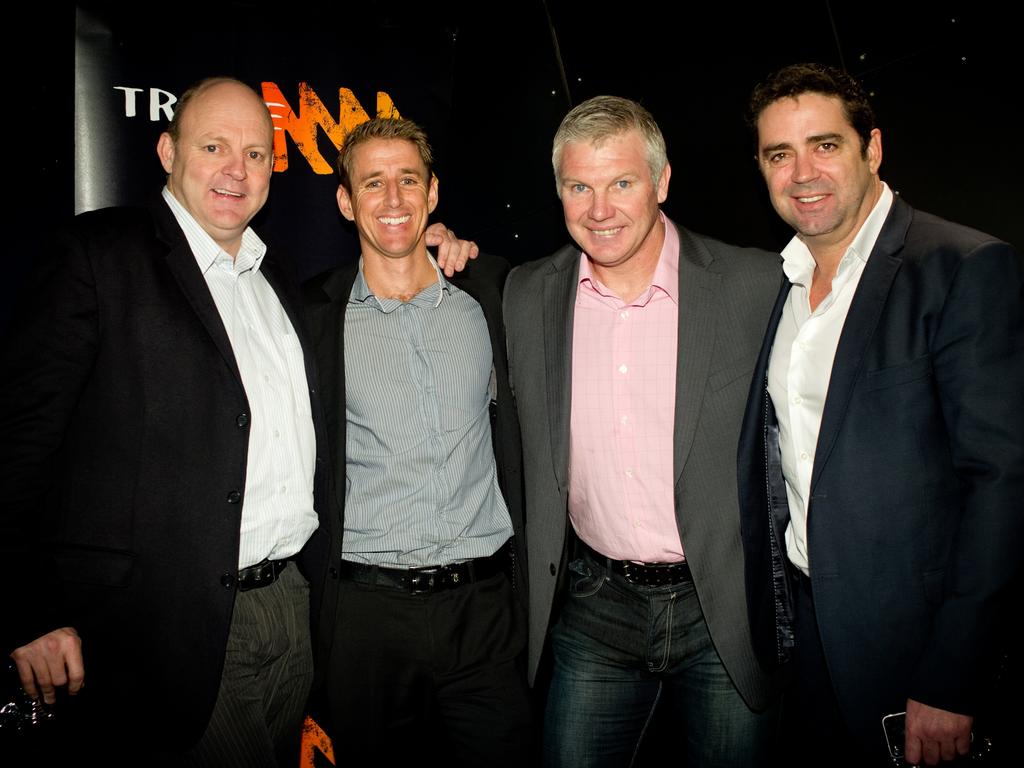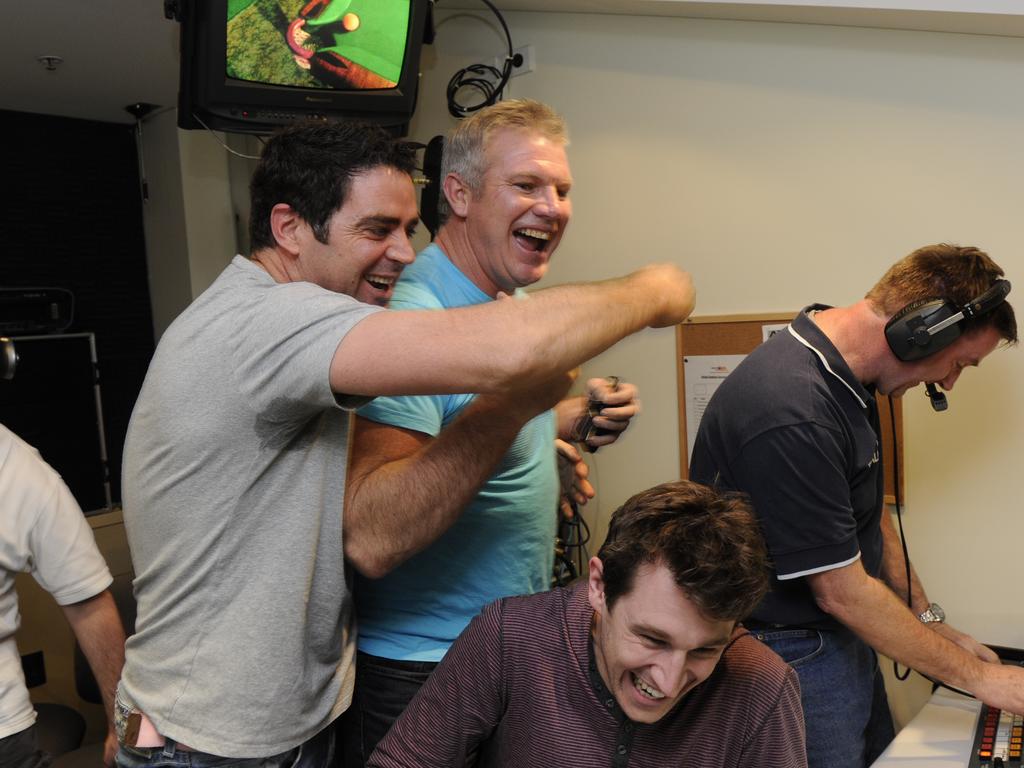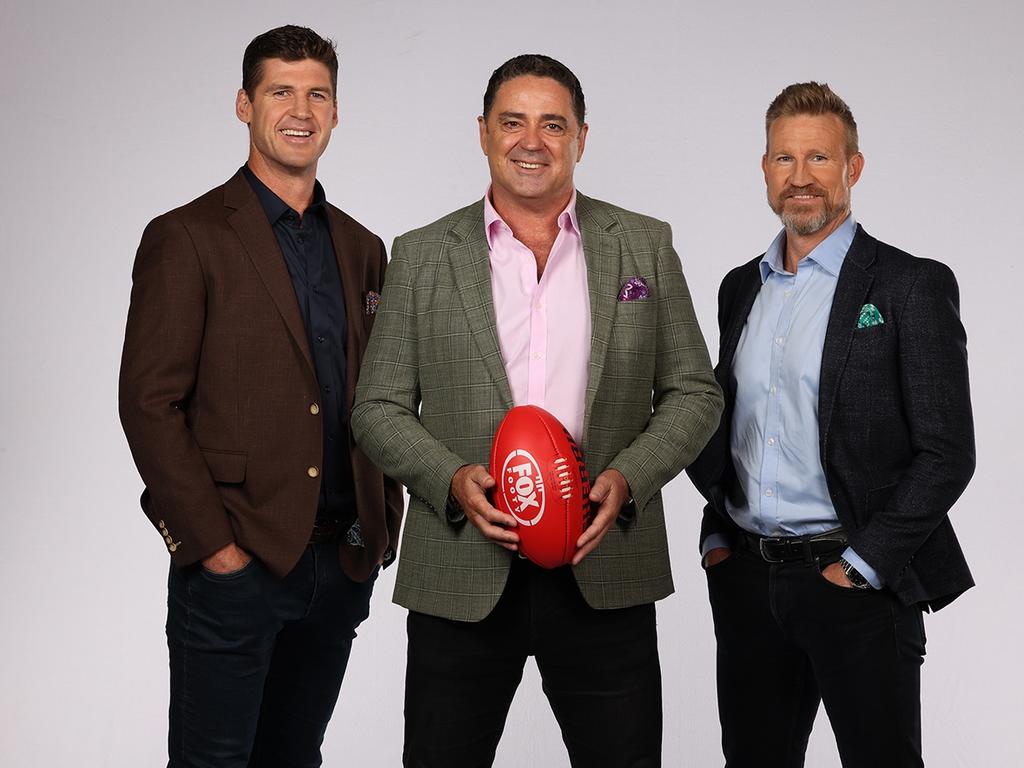Former Demons great Garry Lyon will call concussions brain injuries to highlight serious health issue
The former Demons great and leading AFL commentator, who lost great mate Danny Frawley to CTE, is taking a stand on concussions, saying from now on he will call them out for what they are – brain injuries.

Former Demons great and leading AFL commentator Garry Lyon has called full time on “concussions”, saying from now on he will call them out for what they are – “brain injuries”.
Fox Footy and SEN broadcaster Lyon says it is time to take a stand on the health issue, so more is done to protect players, and encouraged others to follow his lead.
“We say concussion. But what is that? It means the brain is bouncing around in the skull,” Lyon told the Herald Sun.
“My frustration is that if a player gets a hamstring injury, we don’t call it a leg injury, we call it a hamstring. We should call it a brain injury because that’s what it is.
“I will continue to refer to it as a brain injury. I’m more than happy to shine a light and keep it at the forefront of the powers that be.”
While Lyon said he would not tell other commentators what to say as that was their call, he was committed to leading the shift. Lyon admitted it would be hard not to relapse occasionally, saying: “I’m sure there will be times I refer to it as concussion, if only because of habit.”

His comments come amid increasing concerns about the long-term impact of head clashes, with several ex-players having been diagnosed in recent years with chronic traumatic encephalopathy (CTE), after their deaths.
CTE, which is associated with exposure to repeated head injuries, causes memory loss, confusion, depression, suicidality and eventually, progressive dementia.
Former St Kilda legend Danny Frawley, who Lyon described as “unconditional mate”, was diagnosed with CTE after taking his own life the day after his 56th birthday in 2019.
After Frawley’s CTE diagnosis was revealed in 2021, Lyon pledged to continue to raise awareness on mental health issues, saying “it would be enormously special for Danny Frawley to know that the struggles he had to endure were not for nothing”.

Lyon said this week there needed to be a significant shift in thinking given recent controversies over the application of the AFL’s HIA (Head Injury Assessment) guidelines.
One incident which provoked Lyon’s ire involved St Kilda ruckman Rowan Marshall, who lay motionless after being kneed in the head in the last minutes of a tight contest against West Coast at Optus Stadium in Round 12.

According to the AFL’s rules, if a player lays motionless for more than two seconds, it should trigger an automatic off-field assessment, but another ten seconds after a dazed Marshall got to his feet, he shrugged off the attention of both a trainer and a doctor, giving them a thumbs up and continuing.
“That was the shortest HIA of all time,” Lyons said.
Asked about the incident on Fox Footy, AFL head of football Laura Kane said she had spoken to St Kilda officials about the “need for efficient and effective communication” but added “in terms of the HIA and process, we are comfortable with it”.
But Lyon was incredulous the game was not stopped, saying on air: “For a brain injury? Look is this sufficient?”

Lyon was also critical of the failure to conduct an on-field HIA when Cats star Jeremy Cameron’s head struck the ground in a marking contest in Geelong’s clash with the Gold Coast Suns last month, with the player being diagnosed with a “delayed concussion” the following day.
Lyon told the Herald Sun brain injuries needed to be treated in a similar way to other injuries.
“When a player gets a minor hamstring injury the clubs go into a meltdown. ‘Get him off the field! Give him three weeks off,’ they say. ‘We can’t have a repeat hamstring injury!’ But with a suspected brain injury they say ‘let’s assess it on the ground’,” Lyon said.
His remarks come as research from Monash University, released on Saturday, showed concussed Victorian Amateur Football Association players had elevated blood biomarkers indicating their brains were still injured, long after their symptoms disappeared and they returned to play under the body’s then 12-day stand-down period (since increased for amateurs to 21 days).

For those who had been knocked out, the brain injuries could persist for at least four weeks.
The findings are the latest of several studies showing concussed players take much longer to recover than the minimum 12-day AFL stand-down period.
Researchers said the findings supported “the potential adoption of a more conservative return to play timeline.”
Former players found to have had CTE, which can only be diagnosed after death, include Frawley, Graham ‘Polly’ Farmer, Murray Weidemann, Shane Tuck and Heather Anderson – the first AFLW player diagnosed – following her suicide in November 2022.
The Australian Sports Brain Bank found Tuck had the most severe case of CTE they had seen, after the 38-year-old died by suicide in 2020 in the store room of his parents’ home.
The AFL is fighting a major class action by 100 players, led by Geelong favourite Max Rooke, who allege it failed to implement reasonable concussion protocols.
The league has claimed clubs and “players themselves” were responsible for footballers’ wellbeing and individuals knew the risks before taking the field.
The AFL has also said it has made 30-plus rule changes since 2000 in a bid to reduce the risk of players suffering concussions. The AFL declined to respond directly to Lyon’s comments, saying “the health and safety of players continues to remain our number one priority”, with the league investing heavily in repeated head trauma research.



